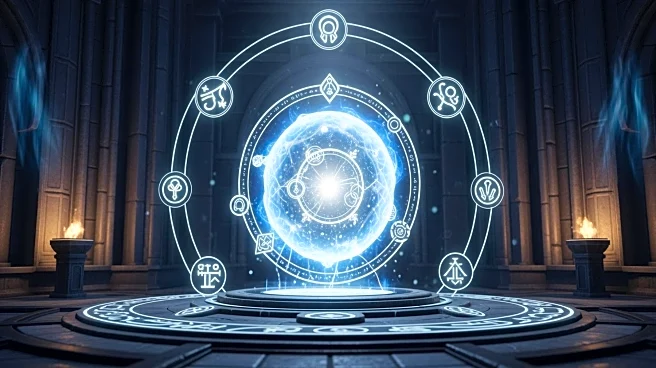What's Happening?
Neil Druckmann, co-creator and director of The Last of Us, recently shared his favorite moment in a video game during an interview with BAFTA. He highlighted a scene from the game Ico, released in 2001,
as particularly impactful. In this scene, the player character is separated from Yorda, a helpless character they have been guiding throughout the game, by a bridge that is splitting apart. The player must sprint and jump towards Yorda, seemingly facing certain death, only for Yorda to unexpectedly reach out and save them. Druckmann described this moment as emotionally powerful and inspirational, noting that it has influenced his approach to game development ever since.
Why It's Important?
Druckmann's reflection on Ico underscores the lasting impact of emotional storytelling in video games. This moment exemplifies how games can create deep emotional connections between players and characters, influencing game design and narrative development. Druckmann's admiration for Ico highlights the importance of innovative mechanics and storytelling in shaping the gaming industry. As a prominent figure in game development, his insights may inspire other creators to focus on emotional depth and character relationships in their projects, potentially leading to more immersive and impactful gaming experiences.
What's Next?
Neil Druckmann has stepped down from his role as co-showrunner of HBO's The Last of Us to focus on game development. His next project, Intergalactic: The Heretic Prophet, is set to be a PlayStation console exclusive. While Druckmann has not ruled out the possibility of developing The Last of Us Part 3, there is no confirmed timeline for its production. His continued focus on game development suggests that future projects may incorporate the emotional storytelling elements he admires in Ico, potentially influencing the direction of upcoming games.
Beyond the Headlines
Druckmann's comments reflect broader trends in the gaming industry, where emotional engagement and narrative depth are increasingly valued. This shift may lead to more games that prioritize storytelling and character development, appealing to a wider audience and enhancing the cultural significance of video games. Additionally, Druckmann's focus on emotional moments in gaming could inspire discussions about the artistic and narrative potential of video games as a medium.











